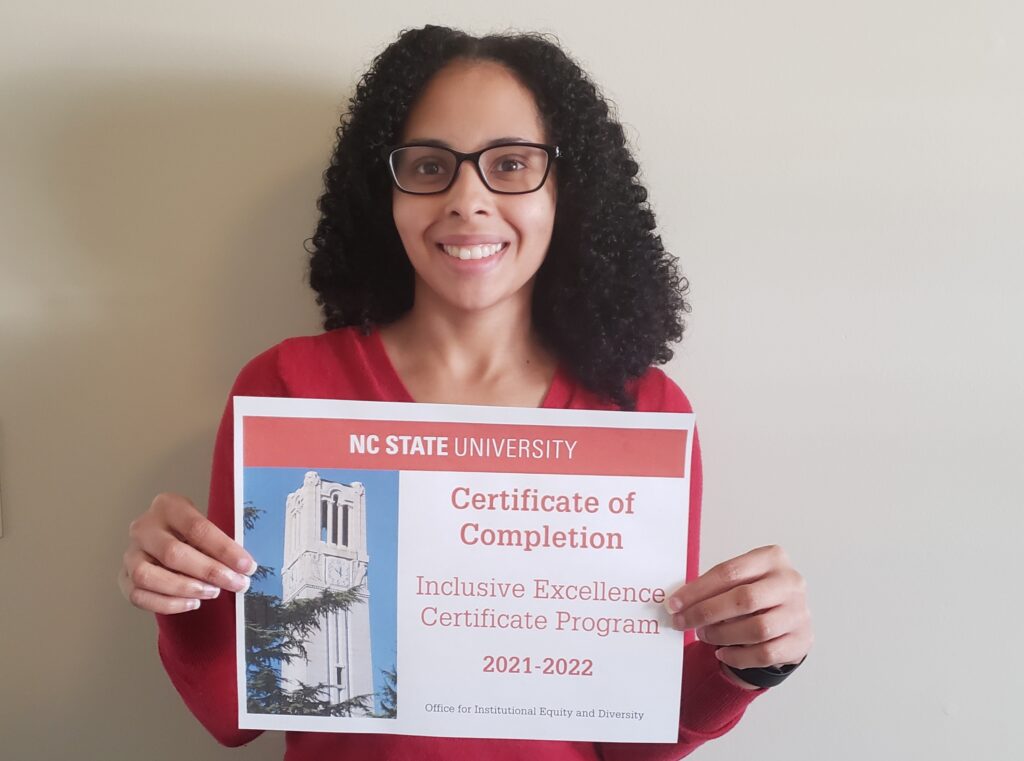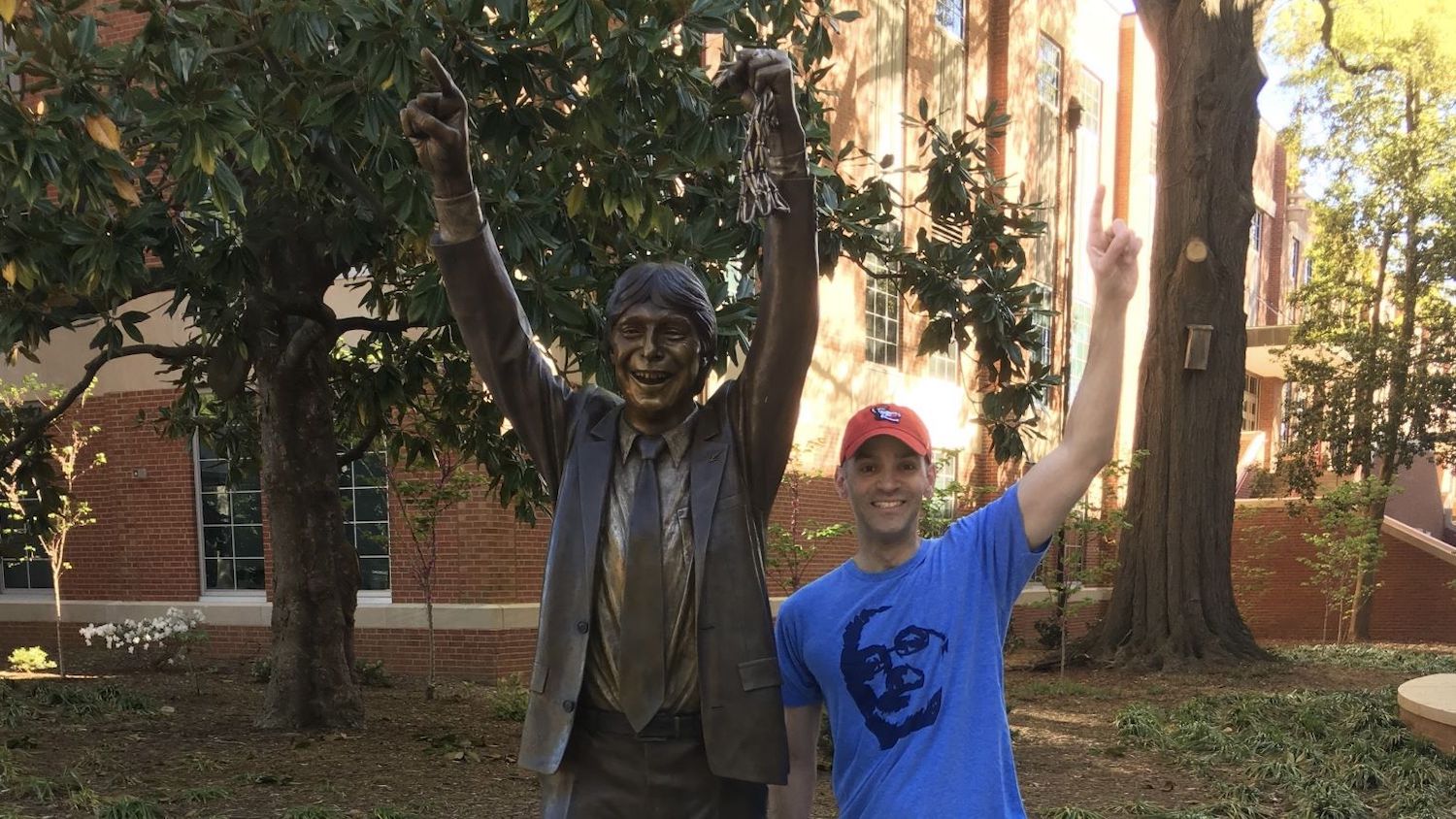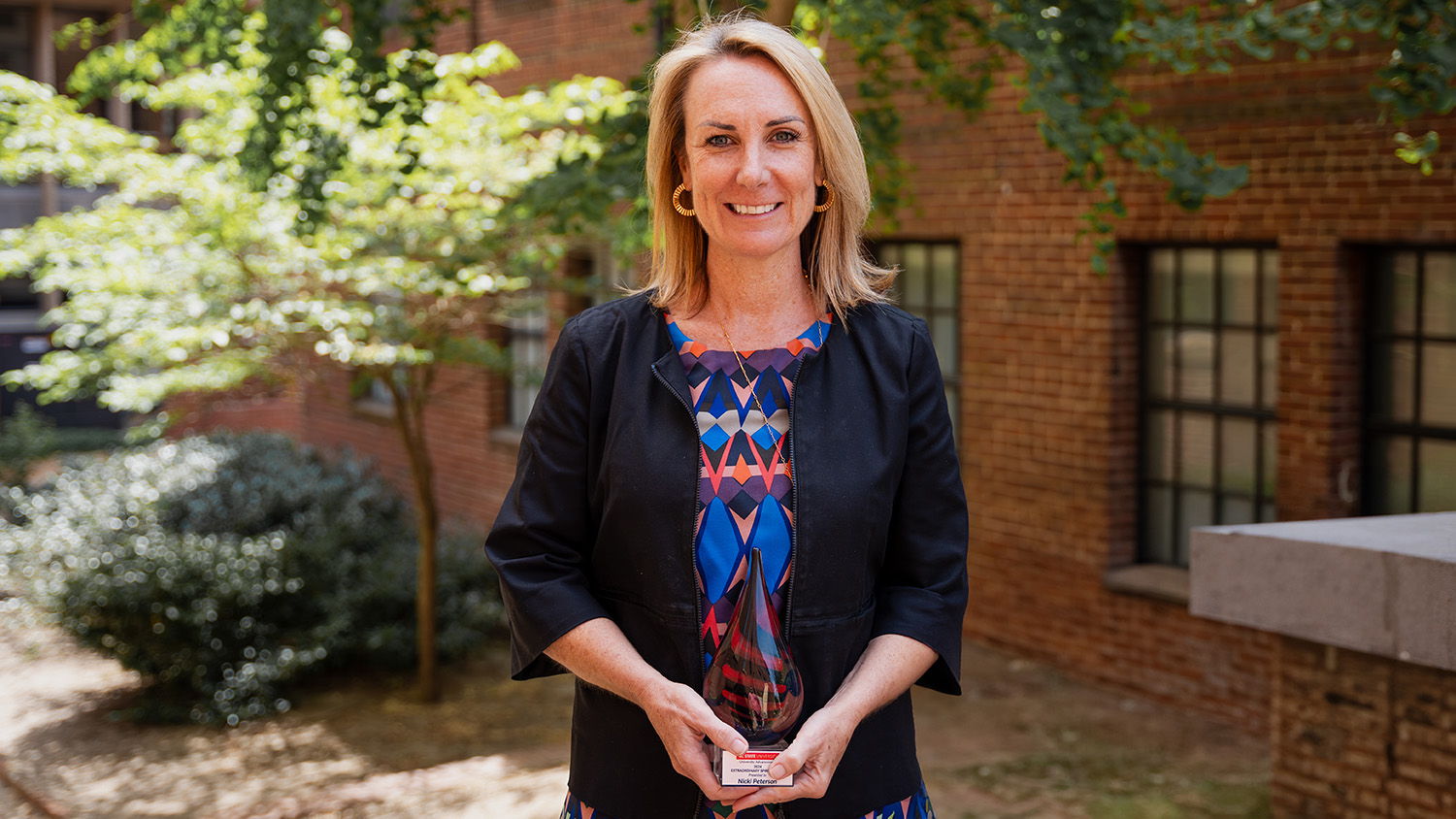Taking DEI Learning to the Next Level With The Strategic Practice Certificate Program
Being raised in two vastly different communities — her low-income neighborhood and the affluent Catholic school she attended — showed Carmen Russell, at a young age, how to appreciate the diversity that exists in our world.
This spring, her commitment to enhancing and promoting diversity, equity and inclusion (DEI) led Russell to enroll in the Office for Institutional Equity and Diversity’s Strategic Practice (SP) Certificate program. Explicitly developed for faculty, staff and graduate students, this engaging program helps participants identify individual and organizational practices to incorporate into their workplace environments.
Russell’s answer was simple when asked what sparked her interest in taking her learning to the next level. “As a woman of color, diversity is important to me,” she says. “I want to see our organization grow in this area, but I think it’s important that I learn and grow with it.”
Her SP Certificate, which she’ll earn next spring, is complementary to one she obtained last year: the Inclusive Excellence Certificate. She says both programs have empowered her to advocate for policy shifts that reflect a more equitable campuswide and divisionwide culture.

As the recruitment and onboarding manager for University Advancement, Russell can immediately put the teachings from the program to work. “That’s what these programs are all about,” she explains. “Learning where my areas of growth are, what some of my unconscious biases might be when recruiting and then thinking about how to pass that knowledge on to others.”
Read her Q&A below to learn Russell’s top three takeaways from the program, how she’s putting her newfound knowledge into action and what other trainings she’s excited to explore.
How did this course differ from the Inclusive Excellence Certificate Program?
I think the two programs are complementary. The IEC Program felt like more of an introductory program touching on topics like bias and equal opportunity. Although I haven’t completed the Strategic Practice Certificate Program yet, I’ve seen that it digs deeper into subjects like power and the emotional labor of DEI.
What three key takeaways have you learned so far during this certification program?
- Power isn’t good or bad, but it can be oppressive depending on how those who have it use it.
- For those who hold power, it is important to establish healthy power dynamics by setting clear boundaries, modeling behavior they hope to see from employees, soliciting feedback from teams and setting clear norms on how they’d like people to speak up and respond to one another. These are all great tips for supervisors and managers.
- When there is no name for a problem, you can’t see it and you can’t solve it.
How do you plan to use your knowledge from this certification program in your current role?
When recruiting diverse candidates, it is essential to keep an open mind, starting with self-examination. That’s what these programs are all about. Learning where my areas of growth are, what some of my unconscious biases might be when recruiting and then thinking about how to pass that knowledge on to others.
How will you and your team being more knowledgeable about DEI topics help University Advancement with recruitment and onboarding?
By being more knowledgeable in this area, we hope to find new avenues for recruiting diverse candidates; we strive to appropriately communicate our DEI efforts to potential candidates when recruiting so that new hires better understand our culture; we are working to better prepare committees during the search process to recognize bias; and we are using what we learned to develop new onboarding processes that will lead to retention of our employees.
When did your passion for diversity, inclusion and equity stem begin?
I was raised in a low-income neighborhood, but I also had the opportunity to attend a private Catholic school. These were vastly different communities that shaped who I am today but also showed me how diverse the world is. I had many positive and some not-so-positive experiences, but I learned at an early age the importance of speaking up for those who do not have a voice. I am still learning to use mine, but that is why this work is so important and continuing to learn and educate myself is equally important.
After this certification, what’s next for you? Are there any other certificates or programs you want to explore?
I’ve recently completed a few training sessions on recruitment and onboarding through The Diversity Movement, which were really helpful. Also, I look forward to continuing to actively participate in T.I.D.E. and the upcoming CASE Strategic Talent Management Conference. While I know this will be more talent management focused than DEI-focused, I’m hoping that there will be a few sessions that focus specifically on DEI and that we’ll be able to collaborate with other CASE members working toward the same goal.
— Kam Heslop
- Categories:


